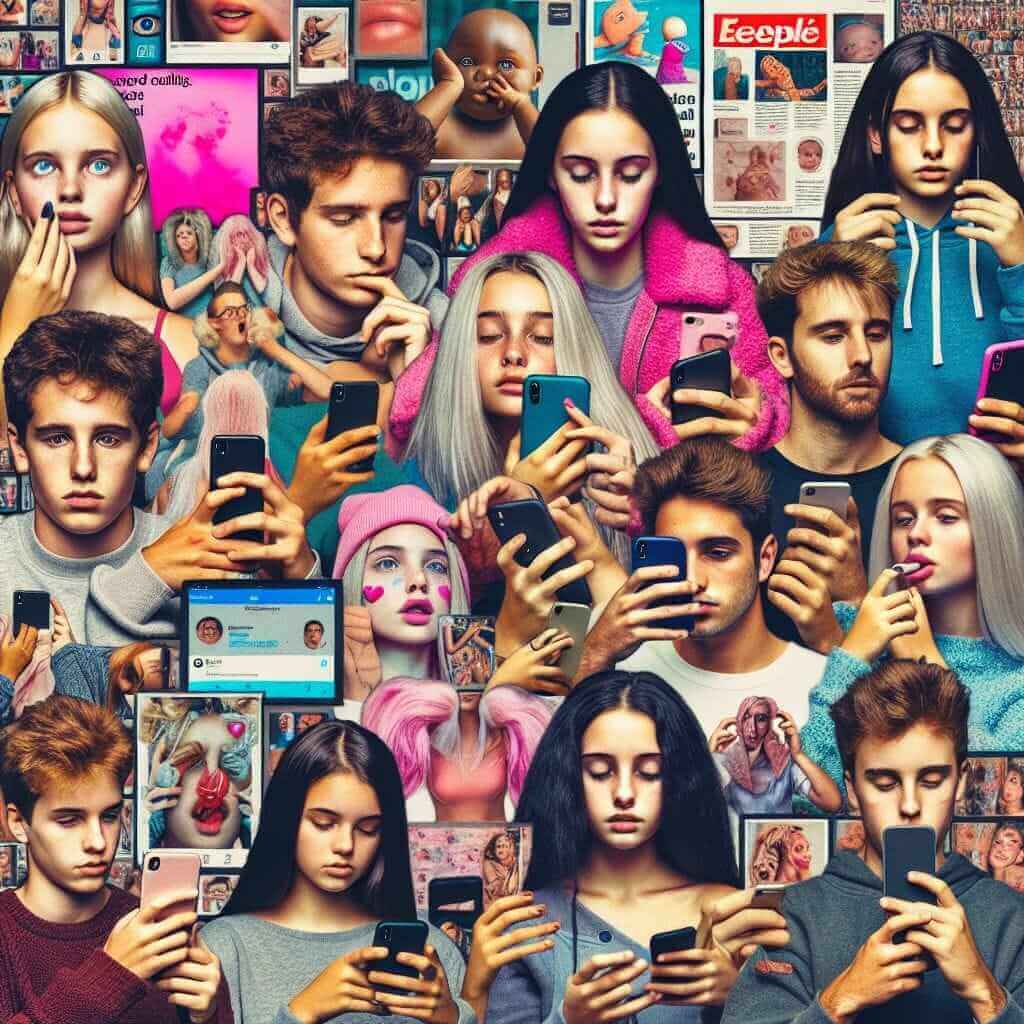The influence of popular culture on youth identity is a perennial theme in IELTS Writing Task 2, frequently appearing in various forms. This topic delves into the complex relationship between media consumption, societal trends, and the development of personal identity during adolescence and young adulthood.
Nội dung bài viết
Here are some potential IELTS Writing Task 2 questions you might encounter related to this theme:
- To what extent do you agree or disagree that popular culture has a significant impact on the way young people view themselves?
- Some people argue that popular culture can be a positive influence on youth, while others believe it is primarily negative. Discuss both views and give your own opinion.
- Analyze the potential consequences of popular culture’s influence on young people’s sense of identity.
Sample Essay: Popular Culture’s Impact on Youth Identity
Let’s choose the first question to develop a sample essay:
To what extent do you agree or disagree that popular culture has a significant impact on the way young people view themselves?
Essay Analysis:
This question requires you to take a clear stance on the issue. You need to decide whether you strongly agree, agree to some extent, disagree to some extent, or strongly disagree with the statement. Your essay should then provide relevant reasons and examples to support your position.
Sample Essay:
It is undeniable that popular culture, encompassing music, film, television, and social media, permeates the lives of young people today. Consequently, it wields a considerable influence on their perceptions of themselves and the world around them. I firmly believe that popular culture has a significant impact on the way young people view themselves, shaping their values, aspirations, and sense of belonging.
One compelling reason for this is the pervasive nature of media imagery. Through carefully curated images and narratives, popular culture presents idealized versions of beauty, success, and happiness. Young people, often in the throes of identity formation, are bombarded with these unrealistic portrayals, leading to feelings of inadequacy or pressure to conform to societal expectations. For instance, studies have shown a correlation between excessive social media use and increased rates of body image dissatisfaction among teenagers.

Furthermore, popular culture often glorifies consumerism and materialism, equating happiness with the acquisition of possessions. This can create a sense of inadequacy among young people from less affluent backgrounds and foster a culture of comparison and competition. The relentless pursuit of the latest trends and gadgets can overshadow the importance of intrinsic values such as hard work, empathy, and personal growth.
However, it is important to acknowledge that popular culture can also have positive influences on youth identity. It can provide a sense of community and belonging, particularly for young people who identify with niche subcultures or online communities. It can also expose them to diverse perspectives and challenge societal norms, promoting tolerance and understanding.
In conclusion, while acknowledging the potential benefits, I maintain that popular culture exerts a significant influence on how young people perceive themselves. The idealized images, consumerist values, and social pressures it perpetuates can have both positive and negative consequences for identity formation. Therefore, it is crucial for young people to engage critically with popular culture and develop media literacy skills to navigate its complexities effectively. (Word Count: 320)
Writing Tips:
- Clear Stance: Ensure your essay clearly states your position on the issue.
- Balanced View: While arguing your stance, acknowledge the opposing viewpoint briefly.
- Relevant Examples: Use specific examples from popular culture to illustrate your points.
- Formal Language: Maintain a formal tone throughout your essay.
- Cohesive Structure: Organize your essay with a clear introduction, body paragraphs, and conclusion.
Vocabulary:
- Permeate (verb /ˈpɜːmiˌeɪt/): Spread throughout something.
- Wield (verb /wiːld/): Have and be able to use power or influence.
- Pervasive (adjective /pərˈveɪsɪv/): Spreading widely throughout an area or a group of people.
- Idealized (adjective /aɪˈdiːəlaɪzd/): Shown in a way that makes something or someone seem perfect.
- Inadequacy (noun /ɪnˈædɪkwəsi/): The state or quality of being inadequate; a lack of something that is needed.
- Glorify (verb /ˈɡlɔːrɪfaɪ/): Describe or represent something as admirable, especially something that is morally wrong or not admirable.
- Consumerism (noun /kənˈsuːmərɪzəm/): The state of an advanced industrial society in which the production and consumption of goods and services is considered extremely important.
- Materialism (noun /məˈtɪəriəlɪzəm/): The belief that having money and possessions is the most important thing in life.
- Intrinsic (adjective /ɪnˈtrɪnzɪk/): Belonging naturally; essential.
- Niche (adjective /niːʃ/): Interesting to, aimed at, or affecting only a small number of people.
Conclusion
Mastering the topic of popular culture’s influence on youth identity is essential for achieving a high band score in IELTS Writing Task 2. Remember to practice writing essays on this and similar themes, focusing on developing a clear argument, using relevant examples, and employing a range of vocabulary. By following these tips and analyzing the sample essay, you can improve your writing skills and approach this topic with confidence.
Further Practice:
- How has social media impacted the way young people interact with each other?
- Discuss the role of celebrities as role models for young people in the age of social media.
- Analyze the potential benefits and drawbacks of young people engaging with global popular culture.